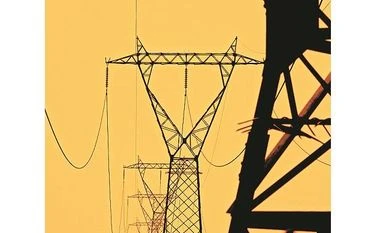Apart from the government’s reiteration of its stand on the ‘One Nation, One Grid’ policy, the Budget had very little for the power sector. If any, it wasn’t directionally encouraging for the traditional coal-fed power plants as the minister emphasised the intent to shift to alternative energy, a factor detrimental to the industry as a whole and particularly for NTPC, given that it is India’s largest power producer with significant thermal concentration.
There are other factors too, which don’t work in favour of NTPC and Power Grid Corporation of India (PGCIL).
For instance, NTPC’s plant load factor — an indicator of capacity utilisation — has been on a downhill since 2016-17 and fell to 77 per cent in 2018-19 (FY19).
PGCIL has different issues — that of lower capital expansion (new capacity that will be set up) guidance to Rs 15,000 crore in 2019-20 (FY20), down from Rs 25,800 crore in FY19. In short, both companies are faced with structural issues, which could impact their financials if they persist longer.
But to everyone’s surprise, the Street’s faith in the two stocks is high. Consider this: NTPC and PGCIL have no ‘Sell’ recommendations, and according to analysts polled by Bloomberg, 25 out of 27 analysts tracking the NTPC stock have ‘Buy’ recommendation on it, while 22 out of the 29 analysts tracking PGCIL recommend ‘Buy’, with the remaining having ‘Hold’ ratings.
The conviction isn’t misplaced, say experts. Both companies work on a regulated return model, which secures them 15.5 per cent return on equity (RoE). Consequently, with this arrangement in place, it gives investors a comfort over their returns, irrespective of the actual performance.
For this reason, the two stocks are viewed as a play on yield. Pankaj Pandey, head of research, ICICI Securities, says they tend to gain when the cost of capital decreases. “RoE improves in a falling cost environment and hence, there is limited downside risk in these stocks,” he adds. In India, the policy rates (repo) and bond yields are on a decline.
This apart, he says, one should not get carried away by the increasing narrative favouring the use of alternative energy. “Power consumption has been increasing in the last two months and if this trend continues, the base load will have to be supplemented by thermal energy,” says Pandey.
Part of Pandey’s conviction is also echoed by analysts at JPMorgan. The brokerage, which expects NTPC’s FY20 earnings to grow by 20 per cent, believes that an increase in return on average regulated equity base for FY20, coupled with a reduction in underrecovery charges driven by better availability of coal at power plants and favourable operational norms, should aid earnings growth for the thermal power maker.
For PGCIL, favourable tariff regulation will be the key earnings trigger, despite factoring in for a fall in pace of capitalisation (new plants contributing to earnings). Analysts at Prabhudas Lilladher add that PGCIL is the only power utility to report higher RoE (16-18 per cent) consistently and has been immune to fuel-related issues. Fundamentals aside, benign valuations (9-10x FY20 earnings) are also encouraging for investors.
Interestingly, despite challenges in FY19, the year sailed past quite comfortably for NTPC and PGCIL, with both exceeding expectation, according to analysts polled by Bloomberg.
NTPC, though, has a more robust history of exceeding the Street estimates.
However, there are other factors that investors need to be mindful of. One is the possibility of consolidation looming over the two companies. News reports suggest a possible merger of state-owned NHPC and/or SJVN with NTPC, which will be an earnings detrimental to the latter.
The likelihood of a stake sale to meet the 51-per cent government holding criteria as announced in the Budget may be another negative trigger for the stock. Moreover, there is also scope for the government to shed some of its holding in the two companies, which currently stands between 55-57 per cent. If done, this could increase the supply of shares into the market, thereby capping the stock price.
Unlock 30+ premium stories daily hand-picked by our editors, across devices on browser and app.
Pick your 5 favourite companies, get a daily email with all news updates on them.
Full access to our intuitive epaper - clip, save, share articles from any device; newspaper archives from 2006.
Preferential invites to Business Standard events.
Curated newsletters on markets, personal finance, policy & politics, start-ups, technology, and more.
)